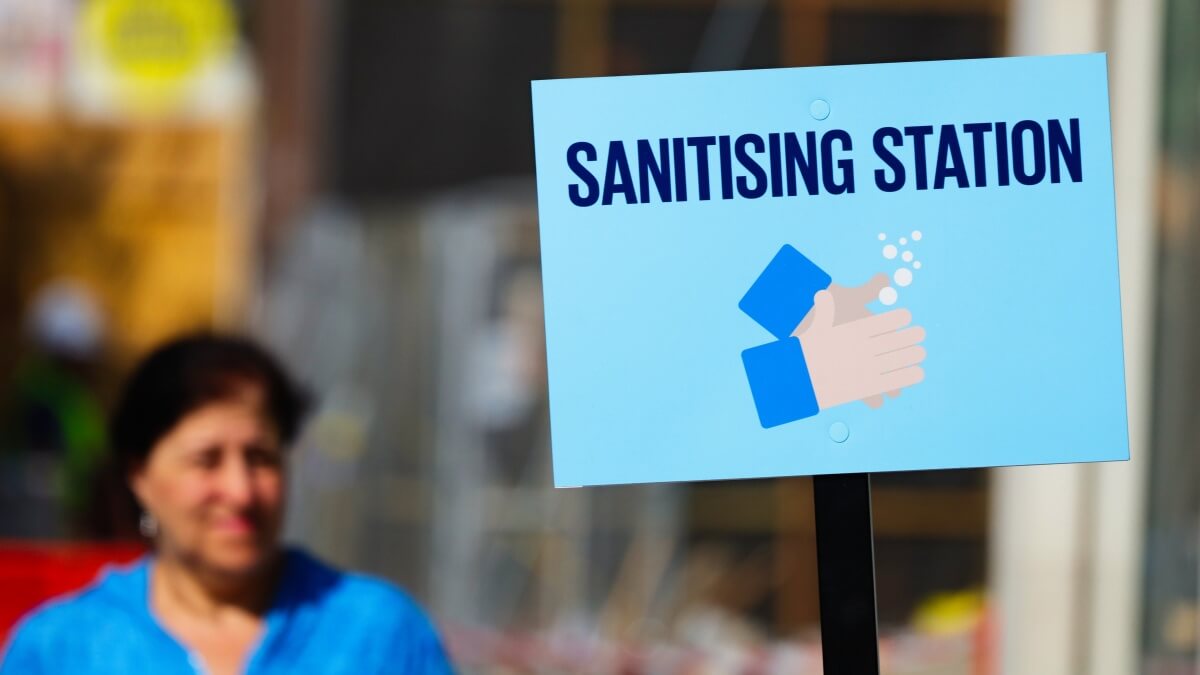As of Tuesday, 18 August, South Africa have been moved to Lockdown Level 2. The announcement comes on the back of a downturn in COVID-19 infection rates. In his address and subsequent letter to the public, President Cyril Ramaphosa reiterated that a second wave of infection (as witnessed in other parts of the world) could mean a return to far stricter prohibitions and that with new freedoms to enjoy, it’s still up to citizens to make sure we proceed with great caution.
Who may trade during Level 2 of the lockdown?
Here is what you need to know about Lockdown Level 2 to help do your part in keeping staff and customers safe at your business.
Sectors permitted
All economic activity is allowed, except for:
- Night clubs must remain closed.
Latest easing of regulations:
All the below may only operate while following social distancing rules and with all patrons or visitors wearing face masks at all times.
- Liquor sales are only permitted from Monday to Thursday (excluding public holidays), between 9am and 5pm.
- Licensed restaurants, bars, and taverns may sell alcohol for on-site consumption until 10pm.
- The sale of tobacco products, including vaping supplies and paraphernalia, are no longer restricted.
- All accommodation for leisure and business purposes is allowed, but only at 50% capacity.
- Gyms, swimming pools and fitness centres may reopen, but only for 50 visitors or less at one time, and following especially strict hygiene protocols. All gyms and fitness centres must submit their proposed special hygiene measures to the government for approval, before they may reopen.
- Sporting grounds and fields may reopen, but still no sporting events with live spectators present.
- Concerts and live performances are allowed, with a maximum of 50 people present.
- Public parks and beaches may reopen.
Regulations still in place:
- Conferences and business meetings are still allowed, with no more than 50 people present.
- Cinemas and theatres remain open, with no more than 50 people present.
- Museums, galleries, libraries and archives may operate, with no more than 50 people present.
- Casinos must continue to operate at no more than 50% capacity.
- Weddings, funerals & religious gatherings may continue, with no more than 50 people present.
Transport restrictions
All public and private forms of transport are allowed, subject to directions. In particular, long-distance travel must be at 70% capacity, but shorter distances may now be completed at 100% capacity. Taxi and bus drivers, owners or operators may not allow access to passengers without face masks.
Movement restrictions
No restrictions on interprovincial movement of people or goods. However, the ban on international travel remains – any exceptions must be approved through a special government application process.
What precautions should be taken?
All workplaces:
Social distancing:
Maintain 1.5m between staff and customers; demarcate safe spacing where possible; install physical barriers where 1.5m separation is not possible (subject to specific sectoral regulations).
Basic Hygiene & Sanitiser:
Businesses must make provision for regular hand washing/sanitising stations, and regularly sanitise all surfaces – paying close attention to high-touch zones.
PPE:
All businesses must supply regulation face masks for employees (and ensure their proper laundering or disposal), plus any other protective gear as required by their industry directives.
Screening:
Employee screening is mandatory, and safe protocols for assisting those at risk must be established. Here’s a helpful video to help monitor for symptoms.
COVID safety officer:
All businesses that interact with the public, must appoint a COVID safety officer to monitor and enforce all special hygiene protocols at their premises. This person(s) must be actively present whenever the business is open to the public.
Increased Individual Responsibility on Level 2
All members of the public must wear face masks (covering both their nose and mouth) wherever they go – in fact, business owners and managers are obliged to deny access to those without masks, from any buildings, offices or other spaces.
Practice thorough hygiene, by washing and sanitizing hands as often as possible and in between touching different surfaces. This is especially important when moving from one area, group of people, or activity to another.
Observe social distancing wherever you go, especially when in private spaces without proper demarcation or enforcement protocols.
Social gatherings are allowed in private dwellings of up to 10 people – however, the president has warned of the massive risk that this poses to the elderly and those with underlying conditions. It’s still best practice to self-quarantine for a minimum of 14 days if you experience any COVID-19 symptoms, or come into contact with someone who has been infected.
A national curfew is still in place, from 10pm to 4am – the only exceptions are for healthcare workers and emergency or security services.
Ready to get back into gear? It's time to ReStart.
Take a look at our ReStart Toolkit for everything you might need to get your business up and running again.
Follow us on Facebook, Instagram, or Twitter and tell us how your ReStart journey going. 🚀



